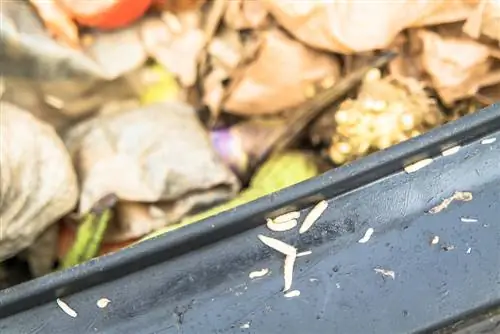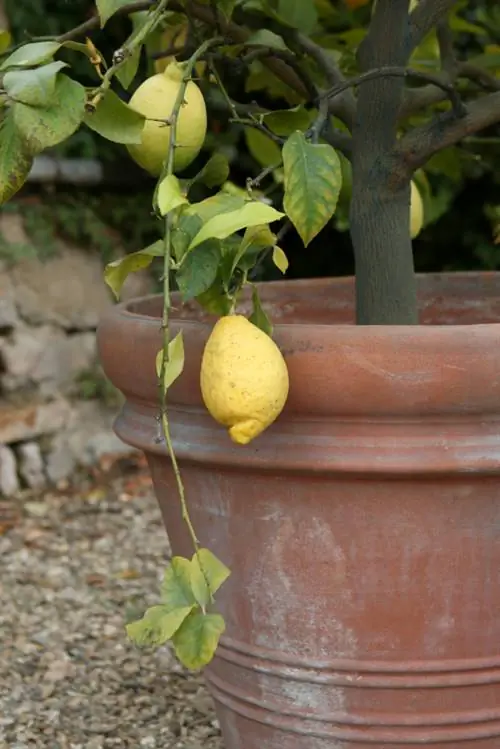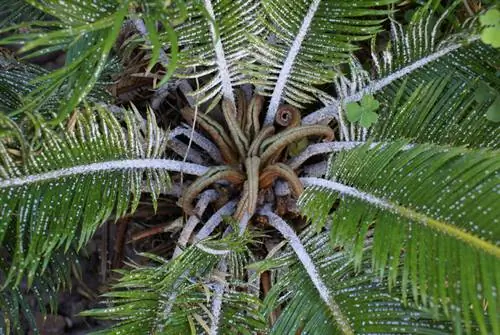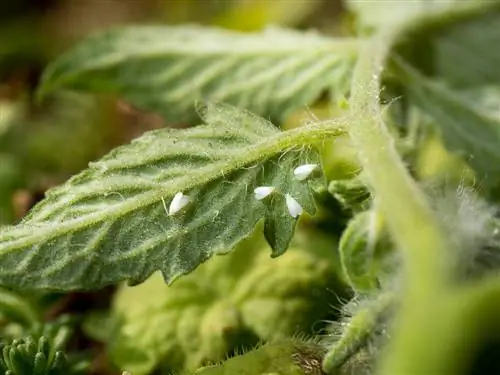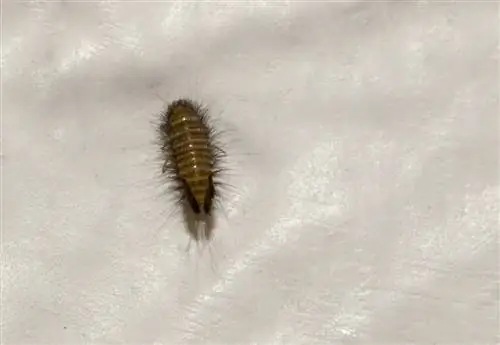- Author admin leonars@hobbygardeners.com.
- Public 2023-12-16 16:46.
- Last modified 2025-06-01 06:02.
If there are thick white maggots in the compost, it is disgusting for some gardeners. However, maggots are not only an aesthetic problem, they also indicate incorrect filling of the compost. This is how you fight maggots in compost and prevent an infestation.
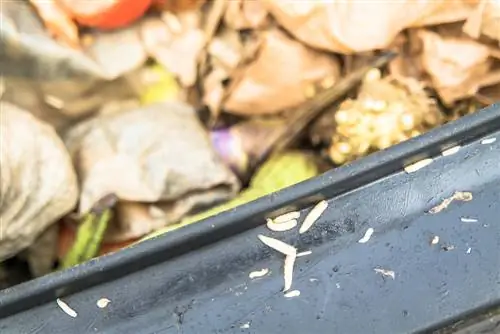
How can you control and prevent maggots in compost?
To control grubs in compost, remove larger grubs by hand or cover the compost with a thick layer of dry materials such as leaves or grass clippings to worsen their living conditions. Avoid animal waste in compost and sieve the compost thoroughly before use.
Maggots and larvae in compost - where do they come from?
The term maggots covers a large variety of different types of insects. This includes flies and all types of beetles.
These lay their eggs in the compost. There they first develop into maggots and later pupate into larvae.
While flies are primarily just a nuisance, beetles can be a real threat to the garden - especially when they appear in large numbers.
Fighting maggots in compost
Larger maggots can be picked out by hand or dug out with a spade and then destroyed. If the infestation is very severe, cover the compost with a thicker layer of dry material. Leaves and grass clippings, for example, are suitable for this. This prevents air circulation and causes the maggots to die.
Make sure the compost is kept dry as the maggots will also dry out.
In the interest of garden he alth, you should avoid using products such as quicklime, vinegar and s alt and other household remedies. They cause more harm than good.
Sift the compost well before use
If you have discovered thick white maggots in the compost heap, you should sieve the compost well before spreading it in the garden. The maggots are filtered out and can be fed to birds, for example.
Preventing maggots in compost
Prevention is not always possible. Beetles such as rose beetles, cockchafers and scarab beetles in particular lay their eggs in the compost, where they grow into maggots.
However, you can prevent fly maggot infestation by filling the compost correctly. Animal waste such as: may not be composted
- Meat leftovers
- Sausage
- animal waste
- Dog poop
- Litter boxes
- cooked leftovers
Tip
Before adding garden waste to the compost, inspect it carefully for possible pests, maggots and larvae. Especially with roots, there is a risk that you will carry the dangerous weevil into the compost.

